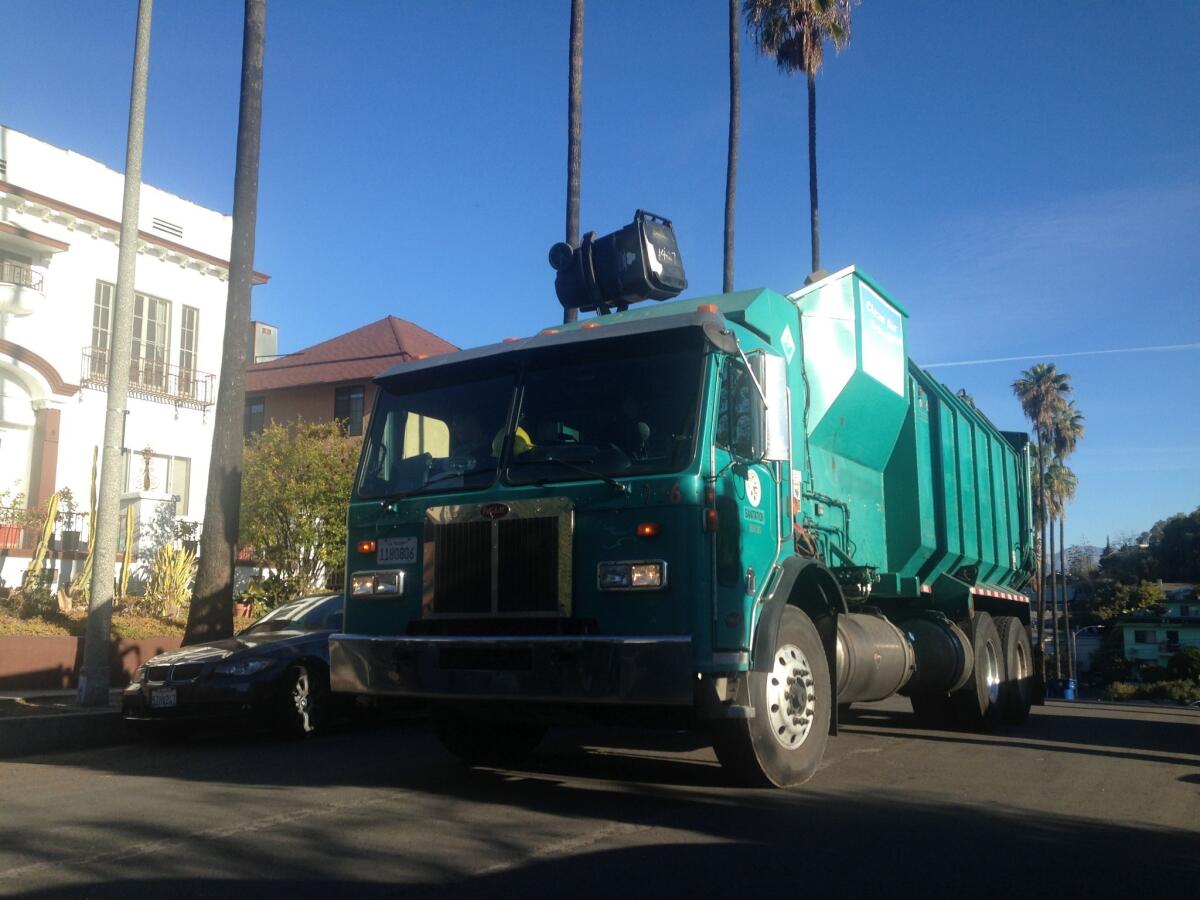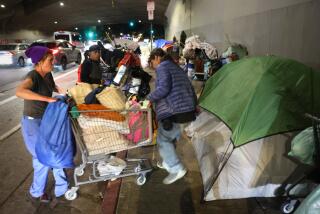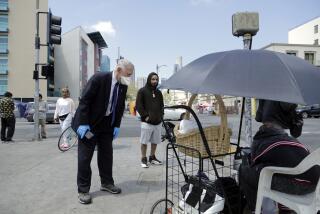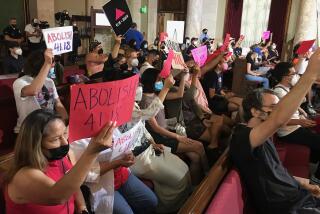L.A. policy on breaks for trash truck drivers could prove costly

L.A. officials wanted to make absolutely sure the city’s trash truck drivers would not get caught sleeping in their trucks — a sight sure to enrage taxpayers or possibly attract a TV news camera.
So they laid down a set of break time rules prohibiting naps and placing other restrictions on where and how drivers could have lunch.
Now, that effort to avoid offending delicate public sensibilities has the city facing a $26-million legal payout, most of it for more than 1,000 trash truck drivers who said they were improperly barred from catching a few winks during their 30-minute meal breaks.
The City Council, meeting behind closed doors, moved ahead Wednesday with the payout, designed to end an 8-year-old class-action lawsuit. The drivers would receive an average of $15,000 each in back pay, according to Matthew Taylor, their attorney. He argued that they effectively were required to remain “on duty”— but not paid — during nine years of meal breaks.
Taylor said the no-napping rule created dangers on the road involving heavy city garbage rigs.
“It’s a hazard to the public if you have commercial truck drivers who are fatigued and are not allowed to take a nap during their breaks,” he said.
In addition to banning naps, the Bureau of Sanitation also prohibited drivers from congregating in large groups or traveling to locations away from their pickup routes during lunch breaks. Those rules were abandoned last summer.
City lawyers warned council members that they might have to pay as much as $40 million if the court battle over the drivers’ work rules continued. A Superior Court judge and a state appeals court panel have already sided with the drivers.
“The city does impose duties during meal periods: the duties to stay awake and to avoid congregating,” trial court Judge John Shepard Wiley Jr. ruled in 2011. “The drivers are thus subject to the city’s control during their meal periods.”
Some lawmakers expressed outrage at the rulings, saying the work rules had a legitimate purpose.
“I just am appalled that a court can take it upon themselves to assert that we have to retroactively pay [workers] for lunch breaks that were in fact taken by our employees,” said Councilman Paul Krekorian, who added that the city’s unions signed off on the work rules.
Krekorian, who heads the council’s Budget and Finance Committee, would not discuss Wednesday’s closed-session deliberations. But three other officials familiar with the lawsuit, who asked to remain anonymous because they were discussing a confidential legal matter, told The Times the council voted to go ahead with the $26-million settlement.
Those sources said the only opposing votes were cast by council members Joe Buscaino and Mitchell Englander. Both declined to comment.
City officials said the contested work rules were intended to guard the public image of the trash collection service and enhance safety. By limiting the number of workers who could gather in one spot for a meal, the city kept large numbers of oversized trash trucks from being parked together in a single neighborhood or in restaurant parking lots, said Enrique Zaldivar, who runs the sanitation bureau.
The no-sleeping rule, Zaldivar said, was imposed to ensure members of the public would not see trash truck drivers asleep in or near their vehicles.
“It’s impossible for the general public … to know whether a driver is on duty or not while sleeping,” he said. “So we felt it was prudent to not have any sleeping occur when the driver is in public view, or during any time that could be construed as on duty.”
The work rule dispute dates back to 2006, when trash truck driver Jose Gravina filed a lawsuit alleging he was routinely denied meal breaks owed after five hours of work. Gravina had been disciplined for napping during his meal break, his lawyer said.
Gravina’s case received class-action status in 2011, the year he retired.
After losing at the trial court level, city lawyers appealed, arguing state meal break regulations do not apply to employees of cities like Los Angeles, which operate under voter-approved charters. An appeals court also sided with the drivers, saying issues of vehicle and public safety trumped any local governance concerns.
Councilman Mike Bonin called the court rulings in the case “obscenely ridiculous,” saying the image of a city employee in uniform in a city vehicle sleeping would be “an affront” to his constituents.
Krekorian said the public would also draw the wrong conclusions upon seeing multiple trash trucks parked outside a restaurant.
“It looks as though they’re not tending to their duties,” he said.
But Taylor, the drivers’ attorney, said any restriction on a meal break — where one can eat, whether they can sleep — puts a worker under “employer control” and requires that they be compensated.
“In order for a meal break to be off duty, you have to be completely removed from employer control,” he said, “which means you can go where you want to go and do what you want to do.”
More to Read
Start your day right
Sign up for Essential California for news, features and recommendations from the L.A. Times and beyond in your inbox six days a week.
You may occasionally receive promotional content from the Los Angeles Times.







